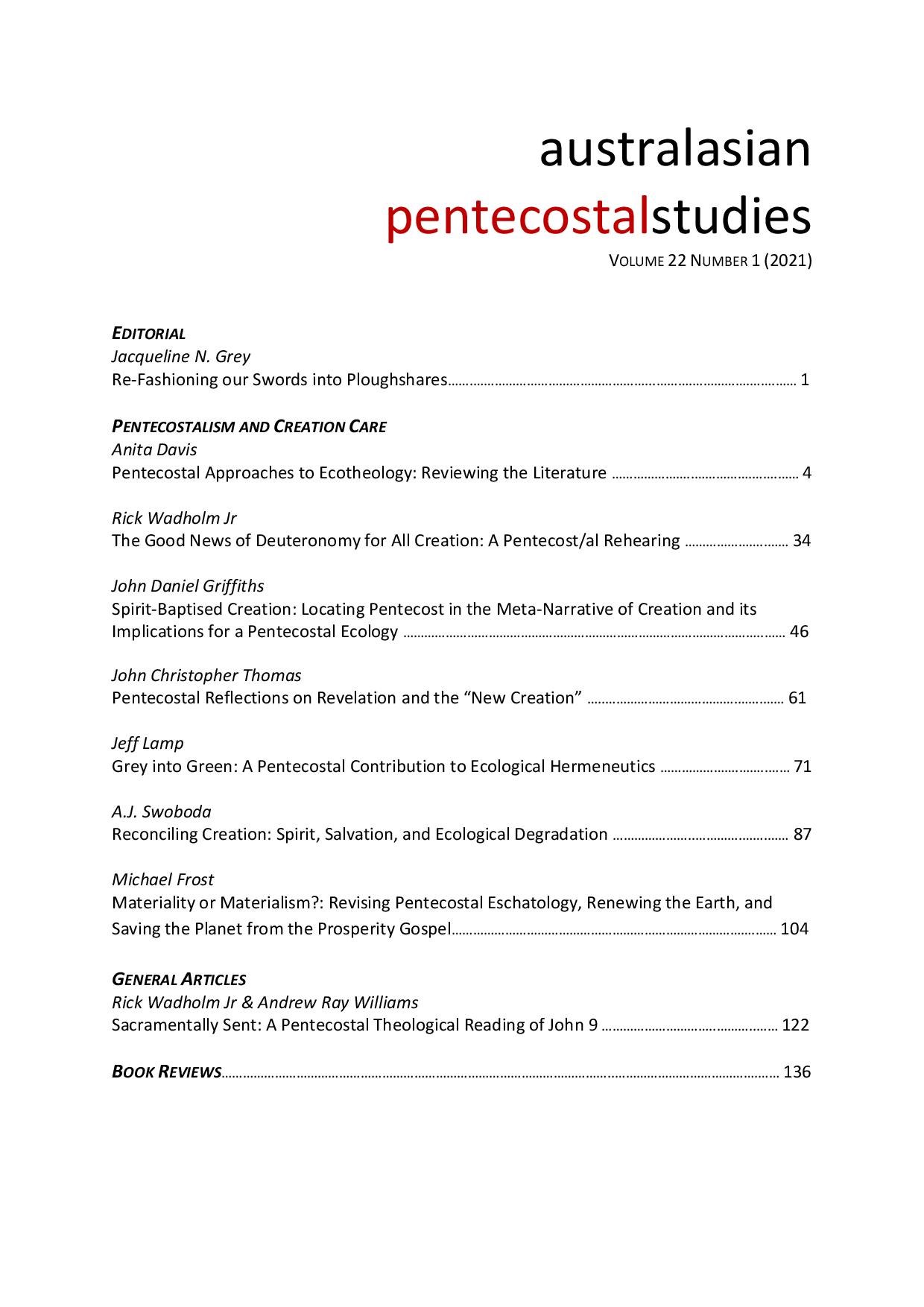Sacramentally Sent: A Pentecostal Theological Reading of John 9
Abstract
In recent years, a number of Pentecostal scholars have begun addressing Pentecostal
interpretations of Scripture. Still, relatively little attention has been devoted to constructing Pentecostal theological readings of specific Scriptures intended to serve as a foundation for further collaboration within the larger ecumenical conversation. In sum, this project seeks to do just that by engaging John 9 via a Pentecostal literary and theological reading that seeks to be faithful to a broader ecumenical theological reading. The Pentecostal reading begins first with attention to the literary context of the passage, moving to the major theme of washing in the Fourth Gospel, and then progressing to read it literarily and theologically, noting implications for doctrinal reflection on the Christian rite of baptism with specific attention to the Pentecostal tradition of the Full Gospel message that Jesus saves, heals, baptizes in the Spirit, and is soon coming king. The end result is an original, constructive reading of John 9 and a model for how texts can be read sacramentally as a way of a more ecumenical, though specifically Pentecostally constructed approach.
Downloads
Published
How to Cite
Issue
Section
License
Authors who publish with this journal agree to the following terms:
- Authors retain copyright and grant the journal right of first publication with the work simultaneously licensed under a Creative Commons Attribution License that allows others to share the work with an acknowledgement of the work's authorship and initial publication in this journal
- Authors are able to enter into separate, additional contractual arrangements for the non-exclusive distribution of the journal's published version of the work (e.g., post it to an institutional repository or publish it in a book), with an acknowledgement of its initial publication in this journal.
- Authors are permitted and encouraged to post their work online (e.g., in institutional repositories or on their website) prior to and during the submission process, as it can lead to productive exchanges, as well as earlier and greater citation of published work (See The Effect of Open Access).


